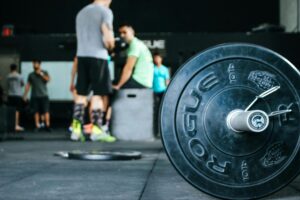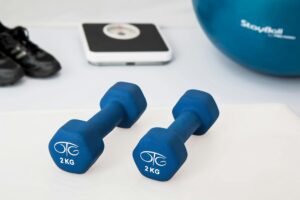Introduction
Proper nutrition is the cornerstone of any successful fitness journey. It’s not just about what you do in the gym but also about how you fuel your body. Achieving your fitness goals, whether it’s building muscle, losing weight, or improving endurance, depends heavily on the nutrients you consume. This blog explores the essential role of nutrition in fitness, covering how macronutrients and micronutrients support physical activity, the importance of timing your meals, and debunking common nutrition myths. By understanding and optimizing your nutrition, you can enhance your performance, speed up recovery, and achieve your fitness goals more efficiently.
1. Understanding the Basics of Nutrition
Nutrition involves the intake of food, considered in relation to the body’s dietary needs. It is essential for growth, repair, and maintenance of good health. Macronutrients, including carbohydrates, proteins, and fats, are the primary sources of energy. Carbohydrates provide quick energy, proteins are vital for muscle repair and growth, and fats are crucial for hormone production and overall well-being. Micronutrients, such as vitamins and minerals, although needed in smaller amounts, are equally important for preventing deficiencies and supporting various bodily functions. Understanding these basics helps in planning a balanced diet that supports overall fitness and health.
- Carbohydrates : These are the body’s main source of energy, especially during high-intensity workouts. They are stored in muscles and the liver as glycogen, which can be quickly converted to glucose during exercise. Complex carbohydrates, like whole grains and vegetables, provide sustained energy.
- Proteins : Essential for muscle repair and growth, proteins are made up of amino acids. Consuming protein helps to repair microtears in muscles caused by physical activity, facilitating growth and recovery. Sources include meat, fish, eggs and dairy.
- Fats : Often misunderstood, healthy fats are crucial for hormone production, joint health, and energy. They provide a concentrated source of energy and are vital for absorbing fat-soluble vitamins (A, D, E, K). Sources include avocados, nuts, seeds, and oil.
- Micronutrients : Vitamins and minerals play key roles in energy production, bone health, immune function, and more. For example, calcium and vitamin D are critical for bone strength, while iron is essential for oxygen transport in the blood.
2. The Role of Nutrition in Fitness
Nutrition plays a pivotal role in fitness by providing the energy needed for exercise and the nutrients required for recovery and muscle building. Carbohydrates and fats are essential for sustaining energy levels during workouts, while proteins are crucial for muscle repair and growth post-exercise. Proper nutrition also supports metabolism, aiding in weight management and fat loss. Hydration, an often overlooked aspect, is vital for maintaining performance and aiding recovery. Without adequate nutrition, even the best workout routine can fall short, as the body needs the right fuel to perform optimally and recover effectively.
- Energy Supply : Carbohydrates are broken down into glucose, the primary energy source for your body’s cells, particularly during high-intensity exercise. Fats provide a more sustained energy release, which is especially important during longer, moderate-intensity workouts.
- Muscle Building and Repair : Proteins provide the building blocks (amino acids) necessary for repairing and building muscle tissue damaged during exercise. Consuming sufficient protein helps to promote muscle protein synthesis, aiding in recovery and growth.
- Metabolism and Weight Management : A well-balanced diet helps regulate metabolism, ensuring that you burn calories efficiently. Proper nutrition supports muscle maintenance, which is crucial because muscle tissue burns more calories than fat tissue, even at rest.
- Hydration : Water is essential for almost every bodily function, including temperature regulation, joint lubrication, and nutrient transport. Dehydration can lead to decreased performance and increased risk of injury.
3. Pre-Workout Nutrition
Pre-workout nutrition is essential for maximizing performance and minimizing muscle damage. Consuming a balanced meal or snack before exercising ensures that your body has the energy it needs. Ideal pre-workout foods include complex carbohydrates for sustained energy, moderate protein for muscle support, and a small amount of fat. Timing is also crucial; eating 30 minutes to two hours before a workout allows your body to digest and convert food into usable energy. Proper pre-workout nutrition can enhance endurance, strength, and focus during exercise, leading to more effective and productive workouts.
- Purpose : The goal of pre-workout nutrition is to provide your body with the energy it needs to perform at its best and to prepare your muscles for recovery.
Optimal Pre-Workout Foods :
- Complex Carbohydrates : Oats, whole grain bread, sweet potatoes.
- Proteins : Greek yogurt, lean meat, protein shakes.
- Fats : Avocado, nuts, and seeds in moderation.
- Timing : Ideally, consume a balanced meal 2-3 hours before your workout or a small snack 30-60 minutes prior. This allows your body to digest and absorb the nutrients, providing steady energy during your workout.
4. Post-Workout Nutrition
Post-workout nutrition is crucial for recovery, muscle repair, and replenishing energy stores. Consuming a mix of protein and carbohydrates within 30 minutes to two hours after exercising helps to restore glycogen levels and promotes muscle protein synthesis. Ideal post-workout foods include lean proteins like chicken or tofu, and complex carbohydrates like sweet potatoes or quinoa. Hydration is also essential to replace fluids lost during the workout. By focusing on proper post-workout nutrition, you can reduce muscle soreness, enhance recovery, and prepare your body for the next exercise session, ultimately helping you reach your fitness goals faster.
- Purpose : Post-workout nutrition aims to replenish glycogen stores, reduce muscle protein breakdown, and increase muscle protein synthesis.
Optimal Post-Workout Foods :
- Proteins : Chicken, fish, eggs, protein shakes.
- Carbohydrates : Sweet potatoes, brown rice, fruits.
- Fats : Healthy fats like almonds can be included but should not dominate the post-workout meal.
- Timing : Eating within 30 minutes to two hours post-workout is optimal for taking advantage of the “anabolic window,” a period when the body is particularly receptive to nutrients.
5. Nutrition Myths and Misconceptions
There are many nutrition myths that can mislead individuals trying to achieve their fitness goals. One common myth is that all carbs are bad, when in reality, complex carbohydrates are a crucial energy source for workouts. Another misconception is that fats should be entirely avoided; however, healthy fats are essential for hormone production and overall health. Detox diets and cleanses are often touted as necessary for weight loss, but they can be harmful and are generally unnecessary for a healthy body. Understanding and debunking these myths is important for developing a balanced and effective nutrition plan.
- Myth 1: Carbs Are Bad: Carbohydrates are essential for energy, especially during high-intensity exercise. Choose complex carbs like whole grains and vegetables over simple sugars.
- Myth 2: Fats Should Be Avoided: Healthy fats, such as those found in seeds, nuts, and olive oil, are crucial for hormone production and overall health.
- Myth 3: Detox Diets Are Necessary: The body has its own detoxification systems (liver, kidneys) and doesn’t need extreme diets to cleanse itself. Focus on a balanced diet instead.
- Myth 4: Supplements Can Replace Food: While supplements can help fill nutritional gaps, they should not replace a balanced diet of whole foods.
6. Personalized Nutrition Plans
Personalized nutrition plans are tailored to meet an individual’s specific needs and goals. Factors such as age, gender, fitness objectives, dietary preferences, and any health conditions must be considered. A one-size-fits-all approach to nutrition often falls short because everyone’s body responds differently to various foods and macronutrient ratios. Working with a nutritionist or dietitian can help in crafting a plan that aligns with your lifestyle and fitness goals. Personalized plans ensure you get the right balance of nutrients to support your training, enhance performance, and achieve sustainable results.
- Importance of Individualization : Each person’s body responds differently to nutrients. Personalized plans take into account unique metabolic rates, activity levels, and specific health goals.
Factors to Consider :
- Age and Gender : Nutritional needs vary across different life stages and between genders.
- Fitness Goals : Whether the goal is to lose weight, build muscle, or improve endurance, the nutritional approach will differ.
- Dietary Preferences : Vegetarian, vegan, gluten-free, etc., to ensure the plan is sustainable and enjoyable.
- Health Conditions : Chronic illnesses or food allergies/intolerances must be accommodated.
- Consulting Professionals : Nutritionists and dietitians can provide expert guidance, ensuring the nutrition plan is both effective and safe.
7. Practical Tips for Integrating Nutrition into Fitness Routines
Integrating proper nutrition into your fitness routine is essential for optimal results. Start by planning meals ahead to ensure you have nutritious options available. Focus on whole foods such as lean proteins, whole grains, fruits, and vegetables. Stay hydrated by drinking water throughout the day, especially before, during, and after workouts. Use supplements wisely, such as protein powders or multivitamins, to fill nutritional gaps. Listening to your body and adjusting your diet based on how you feel and perform can also help in fine-tuning your nutrition strategy for better fitness outcomes.
- Meal Planning : Prepare meals in advance to avoid reaching for unhealthy options. Batch cooking and meal prep can save time and ensure you have balanced meals ready to go.
- Healthy Eating Habits : Include a variety of foods to cover all nutrient bases. Eat regular meals and snacks to keep energy levels stable.
- Hydration : Aim to drink at least 4-5 litres of water a day, more if you’re active. Hydration aids in digestion, nutrient absorption, and performance.
- Supplements : While whole foods are the best source of nutrients, supplements like protein powders, BCAAs, and multivitamins can help fill gaps, especially if you have higher nutritional needs due to intense training.
- Listening to Your Body : Pay attention to how different foods make you feel and perform. Adjust your intake based on energy levels, workout performance, and recovery.
Conclusion
Achieving fitness goals is not just about exercise but also about fueling your body with the right nutrients. Proper nutrition provides the energy needed for workouts, supports muscle growth and repair, and aids in recovery. By debunking common myths, creating personalized nutrition plans, and integrating healthy eating into your daily routine, you can enhance your performance and achieve your fitness goals more efficiently. Remember, nutrition and fitness go hand in hand, and optimizing both will lead to a healthier, stronger, and more resilient body. Take charge of your nutrition today and see the difference it makes in your fitness journey.






